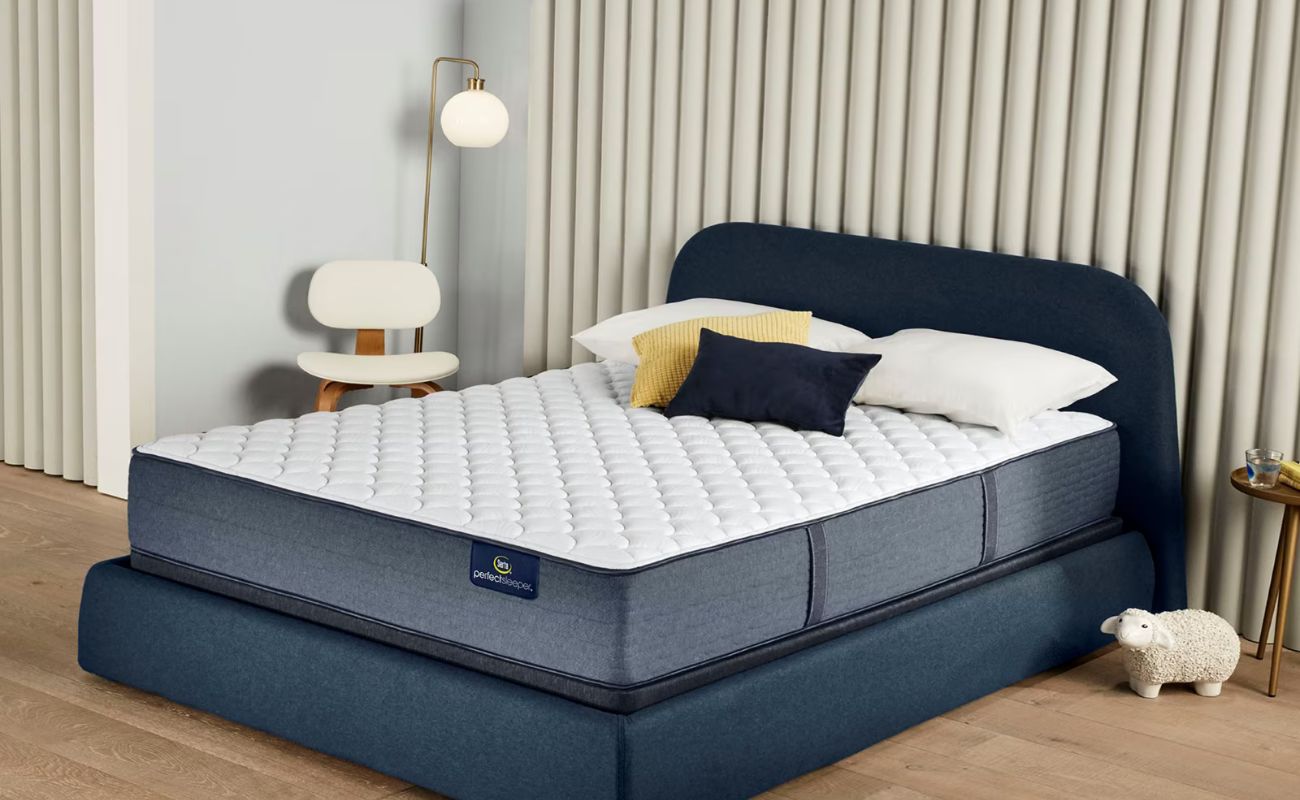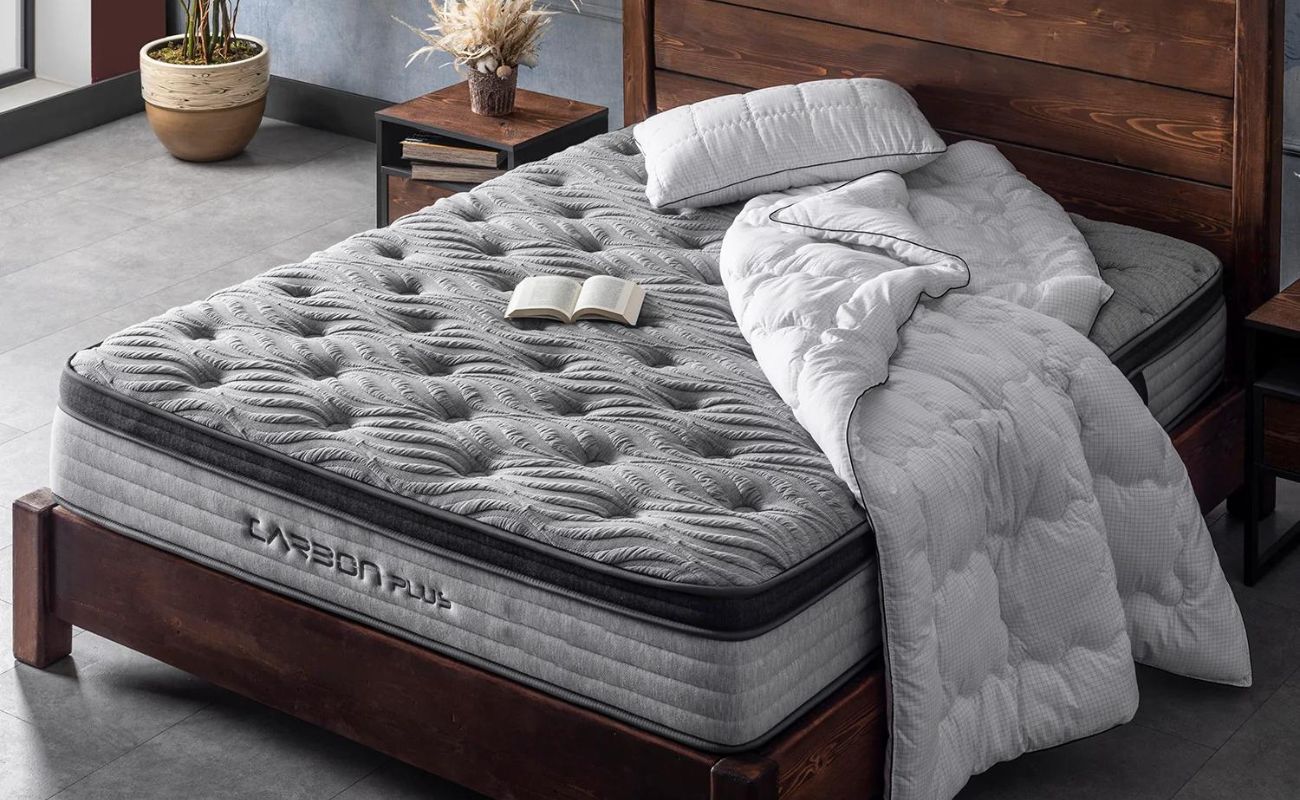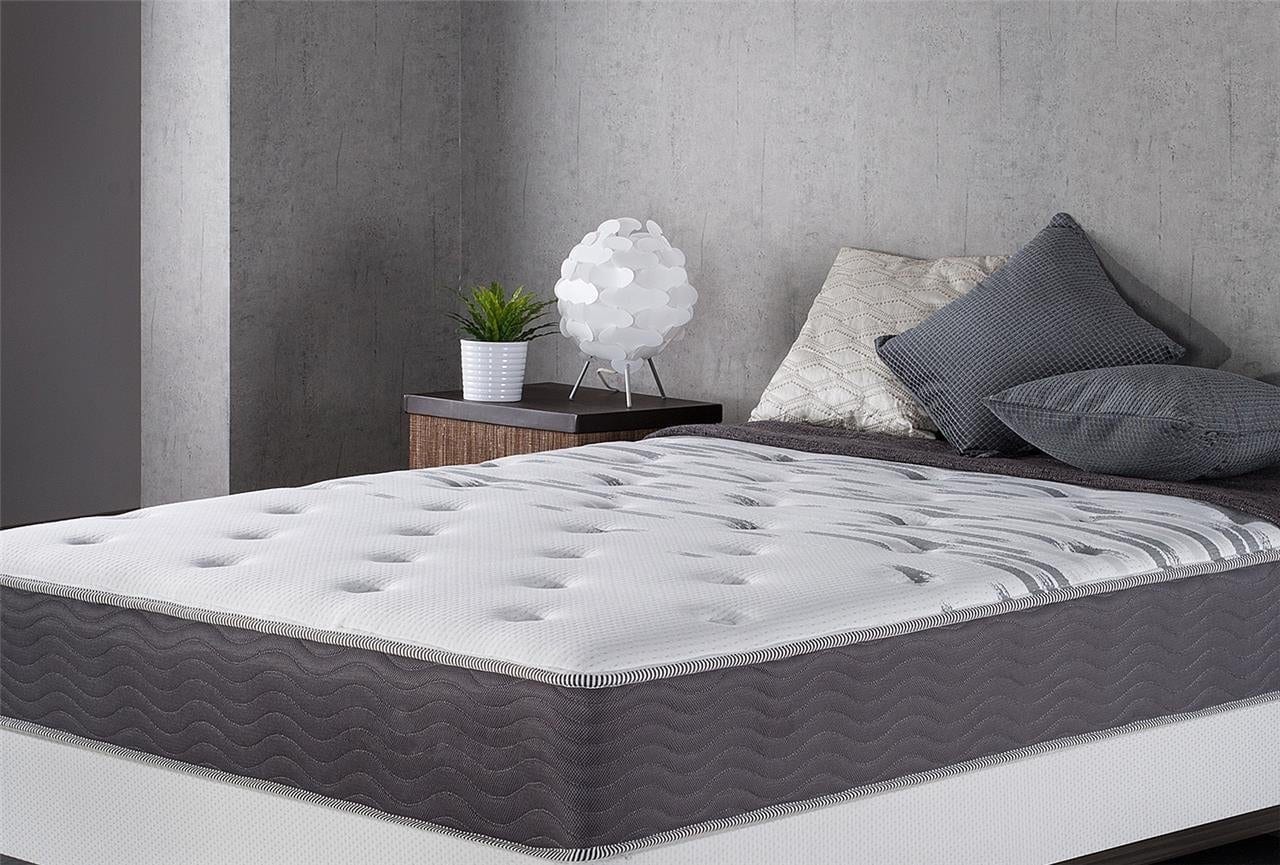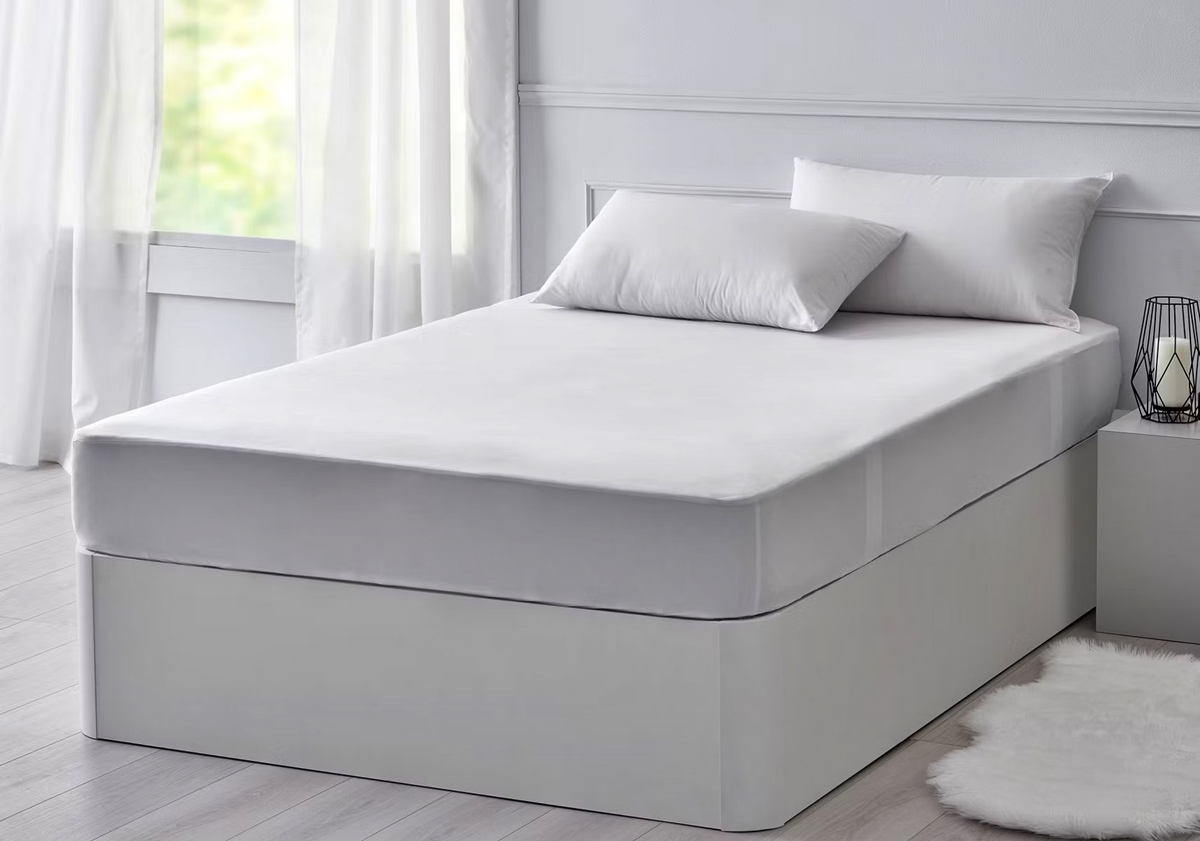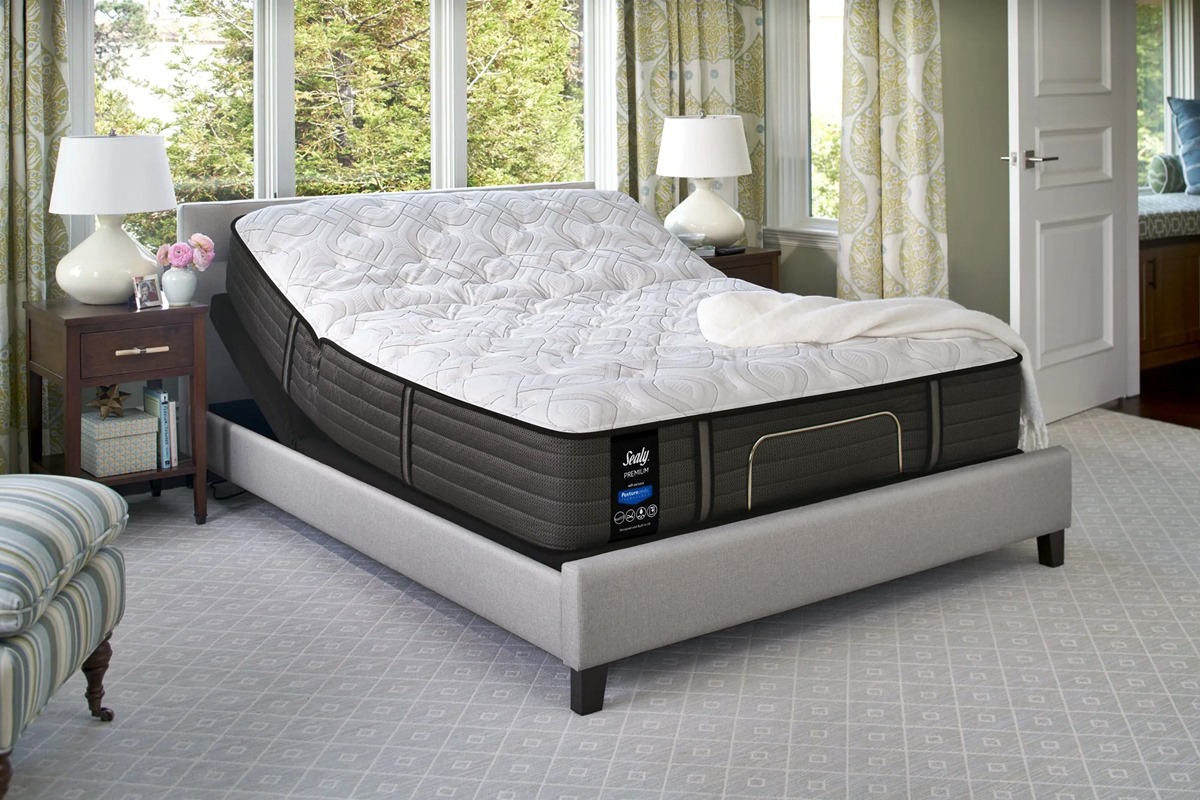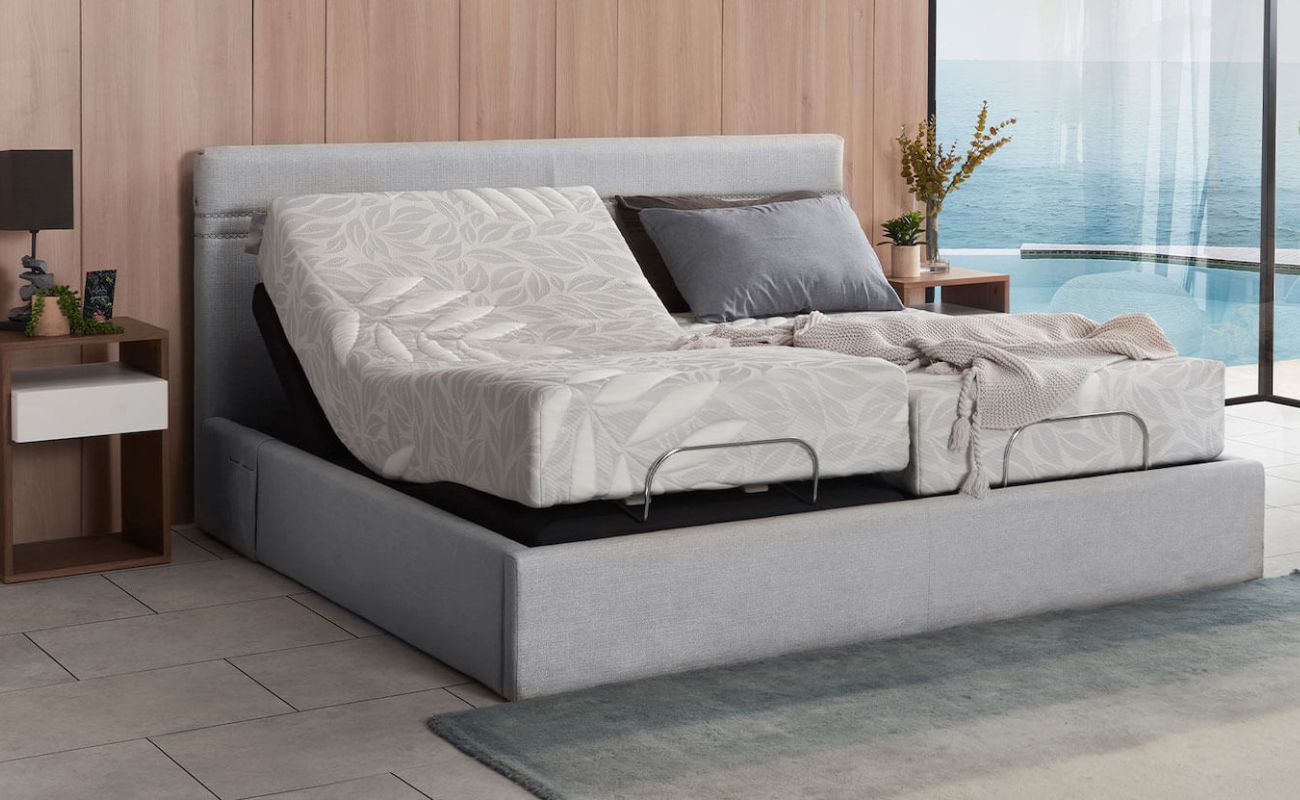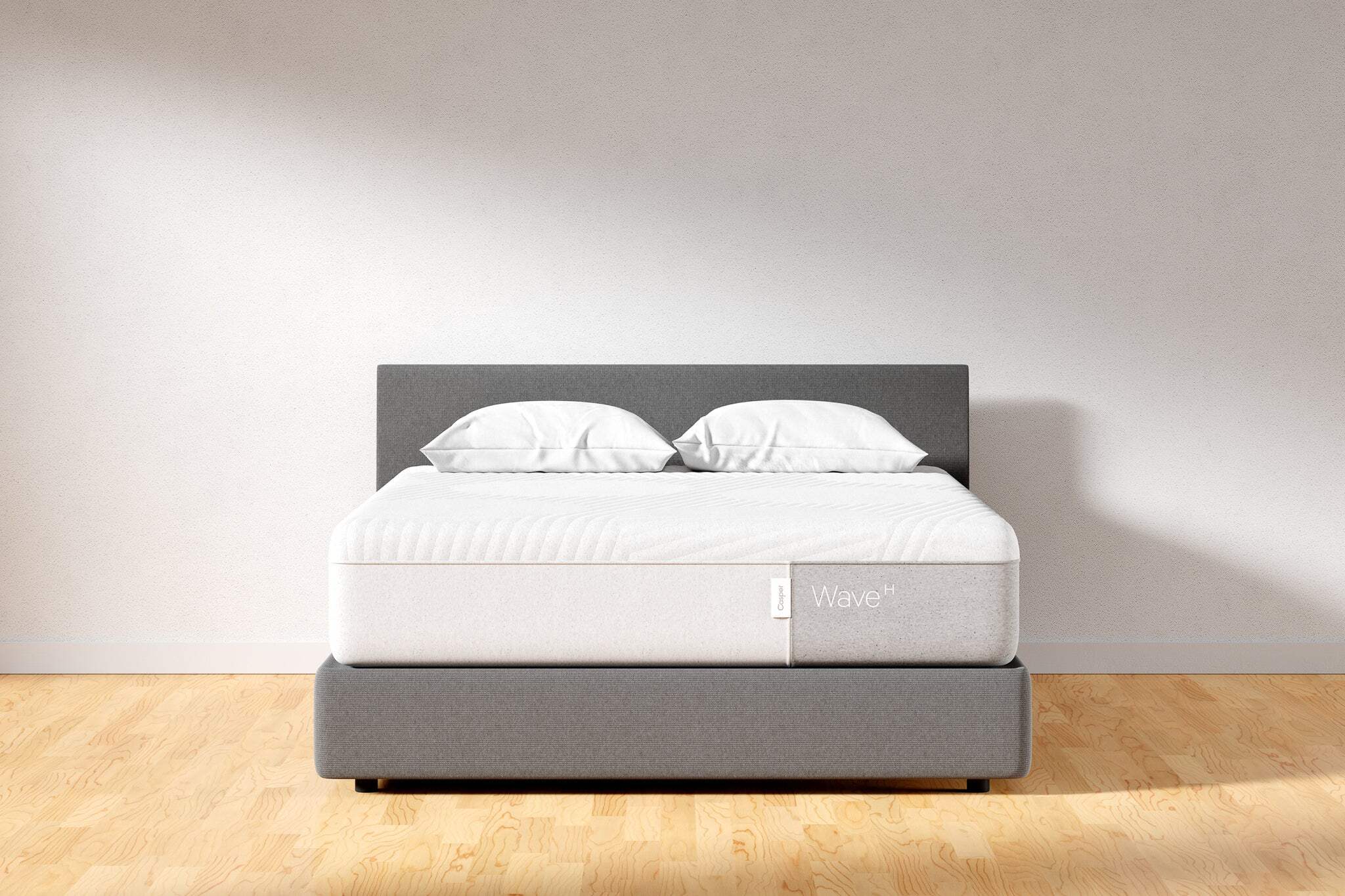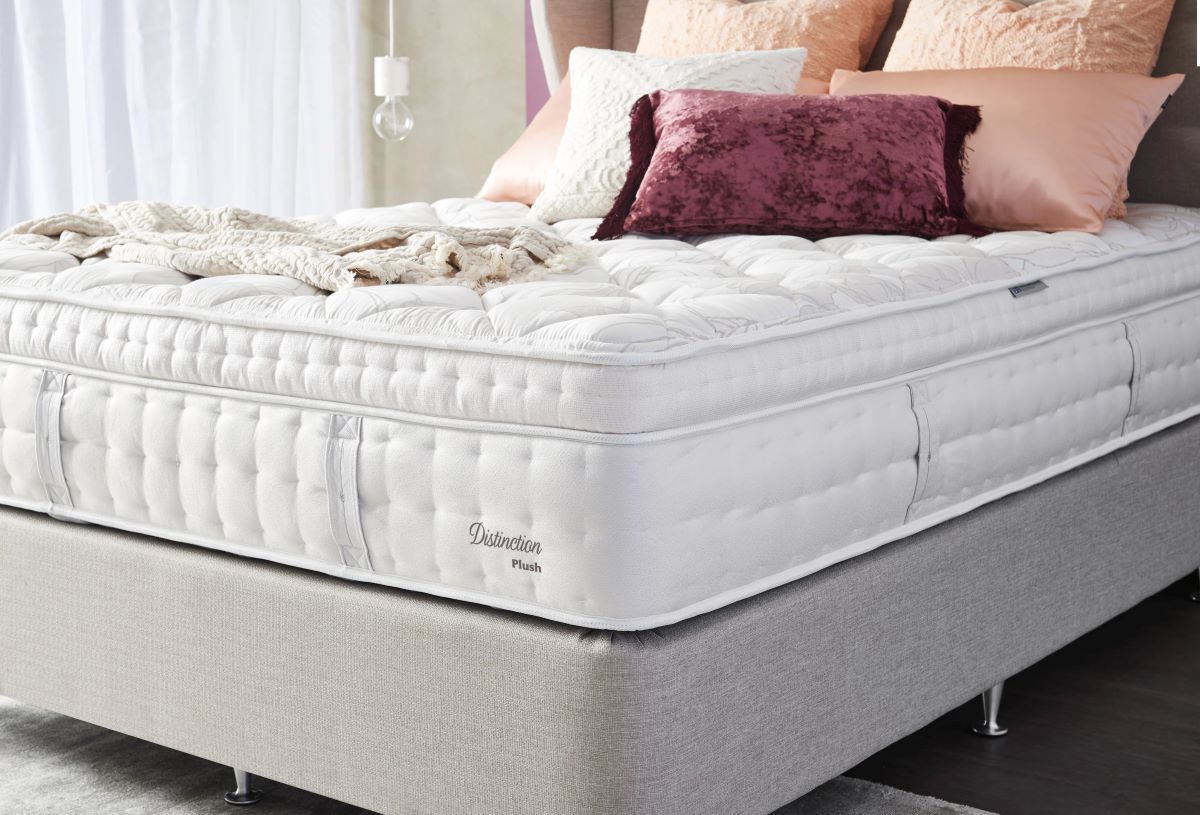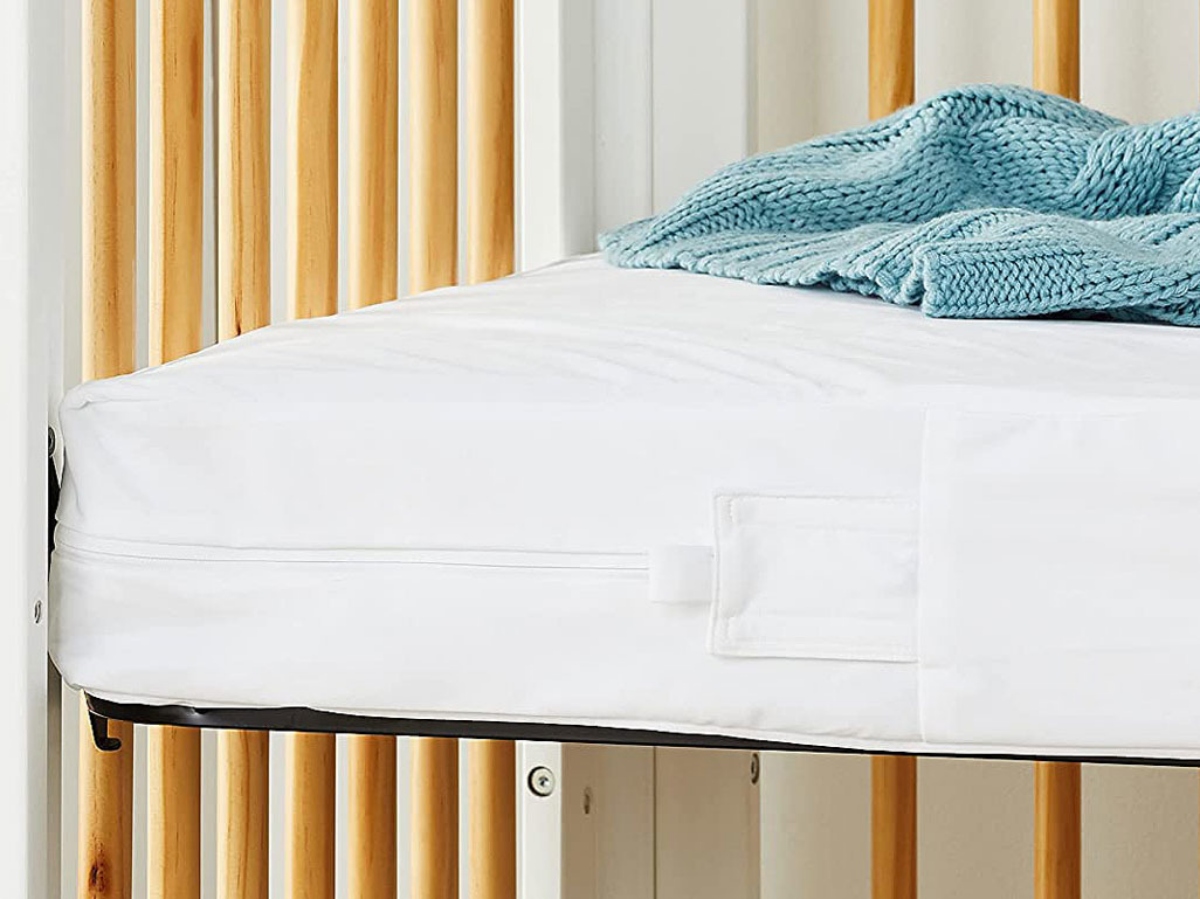Home>Furniture>Bedroom Furniture>What Firmness Mattress Do I Need
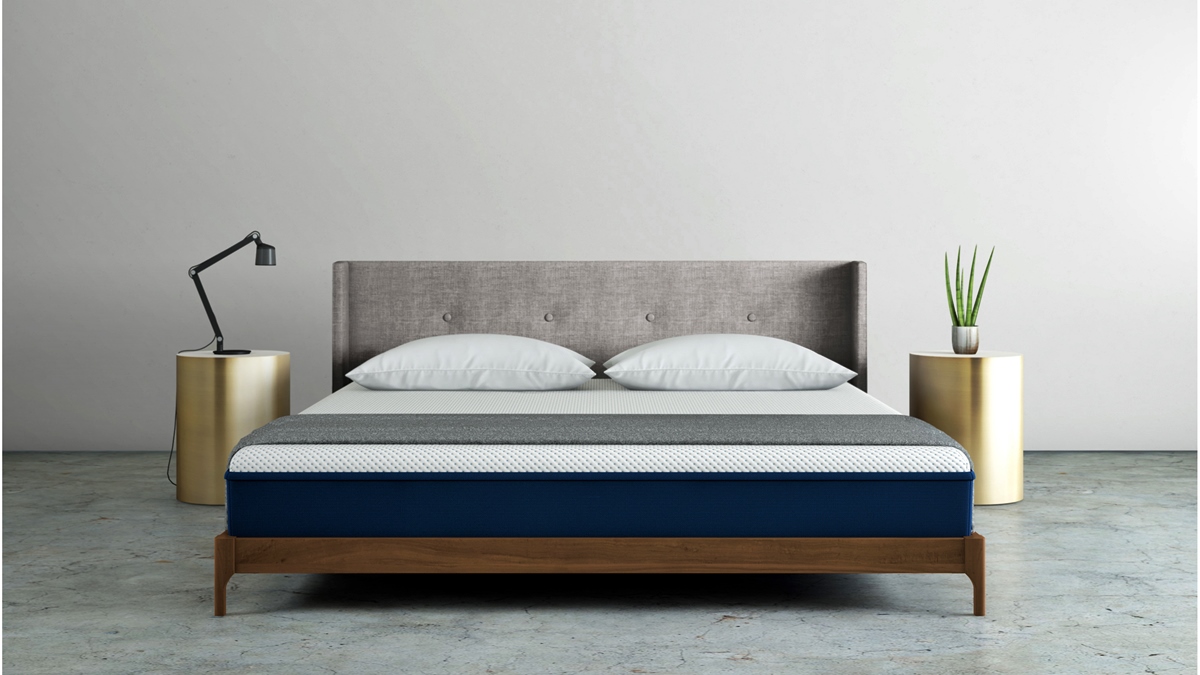

Bedroom Furniture
What Firmness Mattress Do I Need
Modified: February 25, 2024
Discover the perfect firmness mattress for your bedroom furniture. Find the ideal level of comfort and support to ensure a peaceful night's sleep.
(Many of the links in this article redirect to a specific reviewed product. Your purchase of these products through affiliate links helps to generate commission for Storables.com, at no extra cost. Learn more)
Introduction
Choosing the right mattress firmness is essential for getting a good night’s sleep and ensuring optimal comfort in your bedroom. The firmness of a mattress refers to how soft or firm it feels when you lie down on it. Finding the perfect balance of firmness is a personal preference, as it depends on various factors, such as sleeping position, body weight, and individual comfort levels.
In this article, we will explore the different factors that you should consider when determining the ideal firmness for your mattress. By understanding these factors and the various types of firmness available, you will be able to make an informed decision that caters to your unique sleeping needs and preferences.
Key Takeaways:
- Find the perfect mattress firmness by considering your sleeping position, body weight, and comfort preferences. Whether you prefer a plush cloud-like feel or solid support, there’s a firmness level that caters to your unique needs.
- Test out different mattresses and prioritize your comfort to find the ideal firmness that promotes restful sleep, proper spinal alignment, and pressure relief. Whether it’s a firm, medium, or soft mattress, listen to your body and create a sleep environment that revitalizes you each day.
Read more: How Firm Of A Mattress Do I Need
Factors to Consider
When determining the appropriate firmness for your mattress, there are several factors that you should take into consideration:
- Sleeping Positions: Your preferred sleeping position plays a crucial role in determining the ideal firmness for your mattress. Different positions require different levels of support. For example, side sleepers may prefer a softer mattress to relieve pressure on their hips and shoulders, while back and stomach sleepers often find more support in a firmer mattress.
- Body Weight: Your body weight can affect the way a mattress feels to you. Heavier individuals might prefer a firmer mattress to provide adequate support, while lighter individuals may find a softer mattress more comfortable. Consider your weight distribution and how much sinkage or support you need.
- Preferences and Comfort Levels: Ultimately, your personal preferences and comfort levels should be taken into account. Some people enjoy the sensation of sleeping on a cloud-like soft mattress, while others prefer a more firm and supportive feel. Consider whether you like a plush or supportive surface to help determine the desired firmness level.
- Spinal Alignment: A good mattress should promote proper spinal alignment, regardless of firmness level. Your spine should be properly supported and aligned in a neutral position, with no excessive sinking or arching. This ensures that you wake up without any back pain or discomfort.
- Temperature Regulation: Depending on your body’s temperature regulation needs, you might want to consider the breathability and cooling properties of a mattress. Softer mattresses tend to provide more contouring and can sometimes retain heat, while firmer mattresses often have better airflow and heat dissipation.
Keep in mind that these factors are not independent of one another; they often overlap and influence each other. It is essential to assess your own needs, preferences, and priorities to determine which factors are most significant for you.
Sleeping Positions
Your preferred sleeping position is a primary determinant of the ideal mattress firmness for you. Here are the most common sleeping positions and their recommended firmness levels:
- Side Sleepers: If you tend to sleep on your side, you will benefit from a slightly softer mattress. This will provide cushioning and support to your hips and shoulders, allowing for better spinal alignment. Look for a medium to medium-soft mattress to relieve pressure points and promote a comfortable sleep position.
- Back Sleepers: Back sleepers generally require a balance between support and contouring. A medium-firm mattress offers the right level of support to maintain proper spinal alignment. It provides enough firmness to prevent excessive sinking while still conforming to the natural curve of your spine. Avoid mattresses that are too firm or too soft for optimal comfort.
- Stomach Sleepers: Stomach sleepers need a firmer mattress to prevent their hips from sinking too much, which can lead to strain on the lower back. Look for a mattress with a medium-firm to firm level of support to keep your spine aligned and alleviate pressure on your joints.
- Combination Sleepers: If you frequently change positions throughout the night, consider a medium-firm mattress that provides a balance between cushioning and support. This ensures that you are adequately supported in multiple positions and allows for easy movement without feeling trapped in the mattress.
While these are general guidelines, it’s important to note that everyone’s comfort preferences may vary. It’s always a good idea to test out different mattresses and seek individualized advice based on your specific needs and preferences.
Body Weight
Your body weight is an important factor to consider when determining the ideal mattress firmness. Different weights require different levels of support and comfort. Here’s a breakdown of how body weight can influence the choice of mattress firmness:
- Lightweight Individuals: If you weigh less than 130 pounds, you may benefit from a softer mattress. A softer surface allows for greater contouring and sinkage, providing a comfortable and supportive sleep experience.
- Average Weight Individuals: If your weight falls between 130 and 230 pounds, you have more flexibility in choosing the firmness level of your mattress. A medium or medium-firm mattress is often the most recommended choice, as it offers a good balance of support and comfort for a wide range of body types.
- Heavyweight Individuals: If you weigh over 230 pounds, a firmer mattress is generally recommended. A firmer surface provides the necessary support to prevent excessive sinking and maintain proper spinal alignment. Look for a mattress with additional support layers or consider a hybrid or latex mattress for optimal comfort and durability.
Remember that these recommendations are general guidelines, and individual preferences may vary. It’s crucial to take into account factors such as body composition, distribution of weight, and any specific areas of discomfort or pain when choosing the right level of firmness.
Additionally, it’s worth noting that some mattress manufacturers offer specific models designed for different body types. These mattresses often have targeted support zones or materials that cater to different weight categories, providing customized comfort and support.
Ultimately, finding the right firmness for your body weight involves considering your individual needs, preferences, and sleep goals. It is recommended to try out different mattresses and consult with mattress experts to ensure you make an informed decision based on your unique requirements.
Preferences and Comfort Levels
Your personal preferences and comfort levels play a significant role in determining the ideal firmness of your mattress. While there are general guidelines based on sleeping positions and body weight, it’s essential to consider what feels most comfortable and supportive to you. Here are some factors to consider when it comes to preferences and comfort levels:
- Cushioning and Contouring: Some individuals prefer a mattress that provides a hugging sensation and contours to the body’s curves. Softer mattresses typically offer more cushioning and allow for deeper sinkage, providing a plush and enveloping feel. On the other hand, firmer mattresses often have less contouring but provide a more supportive and responsive surface.
- Pressure Relief: If you experience pressure points or joint pain, finding a mattress that offers adequate pressure relief is crucial. Softer mattresses can help alleviate pressure on sensitive areas by distributing weight more evenly, whereas firmer mattresses may provide better support to prevent excessive sinkage and maintain proper alignment.
- Edge Support: If you tend to sleep closer to the edge of the bed or share the bed with a partner, consider the level of edge support offered by the mattress. Firmer mattresses generally provide better edge support, allowing you to use the full surface of the mattress without feeling like you might roll off.
- Motion Transfer: If you share your bed with a partner, you might want to consider the level of motion isolation provided by the mattress. Softer mattresses typically absorb more motion, minimizing disturbances caused by tossing and turning during the night.
- Sleeping Temperature: Temperature regulation is an important aspect of comfort for many individuals. Softer mattresses tend to retain more heat, while firmer mattresses allow for better airflow and cooling. Consider your personal sleeping temperature needs and the climate in which you reside to choose a mattress with the appropriate cooling features.
Don’t be afraid to try out different mattresses and seek recommendations from experts to determine what feels most comfortable to you. Remember, finding the right level of firmness is a subjective process, and what works for one person may not work for another.
Your goal should be to find a mattress that provides the perfect balance of support, comfort, and pressure relief, promoting a restful and rejuvenating night’s sleep.
Read more: Why Do Babies Need A Firm Mattress
Types of Mattress Firmness
When it comes to mattress firmness, there are several categories to choose from. Each category provides a different level of support and comfort. Understanding these different types of firmness can help you narrow down your options and make an informed decision. Here are the main types of mattress firmness:
- Firm Mattresses: Firm mattresses offer minimal sinkage and a very supportive surface. They provide a solid feel with little to no contouring. These mattresses are ideal for back and stomach sleepers or individuals who require extra support for their back or joints. Firm mattresses are known for promoting good spinal alignment and preventing sagging.
- Medium Firm Mattresses: Medium firm mattresses strike a balance between support and cushioning. They offer a comfortable surface with moderate sinkage and contouring. Medium firmness is often a popular choice as it caters to a wide range of sleeping positions and body types. This firmness level provides a combination of support and softness, making it suitable for many individuals.
- Medium Mattresses: Medium mattresses are slightly softer than medium firmness but still offer a good level of support. They provide more sinkage and contouring, which can be beneficial for side sleepers and individuals who prefer a balance between softness and support. Medium mattresses often conform well to the body’s curves, relieving pressure points and promoting a comfortable sleep experience.
- Soft Mattresses: Soft mattresses offer significant sinkage and contouring, providing a plush and cradling feel. They are suitable for individuals who enjoy a cloud-like sleeping surface and prefer maximum cushioning. Soft mattresses offer excellent pressure relief, especially for side sleepers, as they allow the shoulders and hips to sink in. However, it’s important to note that soft mattresses may not provide enough support for certain sleeping positions and body types.
It’s worth mentioning that different mattress brands may have their own firmness scales, and what is considered “medium” or “firm” can vary. It’s always recommended to test out mattresses in person or read customer reviews to get a better understanding of how a specific mattress feels.
Ultimately, your choice of mattress firmness should be based on your individual needs, preferences, and comfort levels. Consider factors such as sleeping positions, body weight, and personal comfort preferences to determine which type of mattress firmness is the best fit for you.
When choosing a mattress firmness, consider your sleeping position. Side sleepers may prefer a softer mattress, while back and stomach sleepers may benefit from a firmer mattress for proper support.
Firm Mattresses
Firm mattresses are designed to offer maximum support and minimal sinkage. They provide a solid and sturdy surface that is ideal for sleepers who prefer a firmer feel. Here are some key characteristics and benefits of firm mattresses:
- Supportive: Firm mattresses are known for their excellent support. They provide a stable and even surface that helps maintain proper spinal alignment. This can be particularly beneficial for back and stomach sleepers, as it helps prevent the back from sinking too much and causing discomfort.
- Prevents Sagging: Firm mattresses are designed to resist sagging and ensure long-lasting durability. The extra support helps distribute your body weight evenly across the mattress, preventing the mattress from developing permanent indentations over time.
- Good for Back Pain: If you suffer from back pain or need extra support for your joints, a firm mattress can be a suitable choice. The firm surface helps keep your spine properly aligned, reducing pressure on your back and alleviating discomfort.
- Temperature Regulation: Firm mattresses tend to have better airflow and heat dissipation, allowing for better temperature regulation while you sleep. This can be particularly beneficial for individuals who tend to sleep hot or live in warm climates.
- Minimal Motion Transfer: Firm mattresses are generally less prone to motion transfer. This means that movements made by your partner during the night are less likely to disturb your sleep, promoting uninterrupted rest.
- Recommended for Heavier Individuals: Heavier individuals often benefit from a firmer mattress that offers more support and prevents excessive sinking. A firm mattress can help distribute the weight more evenly, ensuring optimal comfort and minimizing the risk of discomfort or pain.
While there are numerous benefits to firm mattresses, it’s important to consider your personal comfort preferences and sleeping needs. If you find a mattress to be too firm and uncomfortable, you may want to explore other firmness levels such as medium firm or medium. Remember that everyone’s comfort level can vary, and it’s essential to choose a mattress that feels right for you.
If you’re unsure whether a firm mattress is the right choice for you, it’s helpful to test out different mattresses in person or read customer reviews to get a better idea of how a specific firmness level feels. Ultimately, finding the right balance of firmness and comfort is key to enjoying a restful and rejuvenating night’s sleep.
Medium Firm Mattresses
Medium firm mattresses strike a balance between support and cushioning, making them a popular choice for many sleepers. They offer a comfortable and supportive surface that caters to a wide range of sleeping positions and body types. Here are some key characteristics and benefits of medium firm mattresses:
- Supportive and Comfortable: Medium firm mattresses provide a combination of support and softness. They offer a gentle cushioning feel while still maintaining adequate support for proper spinal alignment. This makes them suitable for back, stomach, and combination sleepers.
- Pressure Relief: The moderate sinkage and contouring of medium firm mattresses help alleviate pressure on key areas such as the shoulders, hips, and lower back. This can aid in reducing discomfort and promoting a more comfortable sleep experience.
- Flexibility: Medium firmness offers a versatile option that can accommodate different sleeping preferences and body weights. It strikes a balance between plushness and support, providing a surface that conforms to the body’s contours without excessive sinkage.
- Motion Isolation: Medium firm mattresses often excel in motion isolation, minimizing the transfer of motion from one side of the bed to the other. This can be beneficial for couples or individuals who share their bed, as it reduces disturbances caused by movements during the night.
- Adaptable: Medium firm mattresses are suitable for a wide range of sleepers, including those with varying body weights. They offer enough support for heavier individuals while still providing enough cushioning for lighter individuals.
- Good for Combination Sleepers: If you tend to change your sleeping position throughout the night, a medium firm mattress can be a great choice. It allows for easy movement and adjustment without feeling excessively soft or firm.
While medium firm mattresses offer a balance of comfort and support, it’s important to consider your individual needs and preferences. Some individuals may find that they prefer a slightly firmer or softer mattress based on personal comfort levels or specific medical conditions. It’s always recommended to test out different mattresses or read customer reviews to get a better understanding of how a specific medium firm mattress feels.
Ultimately, the goal is to find a mattress that provides the right level of support and comfort for your unique needs. A medium firm mattress offers versatility and can be a suitable option for many sleepers seeking a balance between softness and support.
Medium Mattresses
Medium mattresses offer a balance between support and softness, making them a popular choice for sleepers who desire a comfortable sleep surface with moderate sinkage and contouring. They provide a versatile option that caters to various sleeping positions and body types. Here are some key characteristics and benefits of medium mattresses:
- Comfort and Support: Medium mattresses provide a balanced blend of comfort and support. They offer a gentle cushioning feel without sacrificing the necessary support for proper spinal alignment. This makes them suitable for a wide range of sleepers, including back, side, and combination sleepers.
- Pressure Relief: The moderate sinkage and contouring of medium mattresses help alleviate pressure points on the body. They distribute weight evenly, relieving pressure on the shoulders, hips, and back. This can promote a more comfortable sleep and reduce the risk of waking up with pain or discomfort.
- Conforming: Medium mattresses conform well to the body’s contours, providing a cradling sensation. This allows for better support and reduces the risk of developing pressure sores or numbness. The even distribution of weight helps prevent excessive sinking or sagging.
- Versatility: Medium firmness is a versatile option that can accommodate different sleeping preferences and body weights. It strikes a balance between plushness and support, making it a suitable choice for individuals with varying needs and comfort preferences.
- Motion Isolation: Medium mattresses often excel in motion isolation, minimizing disruptions caused by movements during the night. This can be advantageous for couples or light sleepers who are easily disturbed by their partner’s movements.
- Good for Combination Sleepers: If you frequently change your sleeping position throughout the night, a medium mattress can provide the adaptability and comfort you need. It allows for easy movement and adjustment without feeling excessively soft or firm, supporting a seamless transition between positions.
While medium mattresses offer a balanced level of support and cushioning, it’s important to consider your individual needs and preferences. Some sleepers may find that they prefer a slightly firmer or softer mattress based on personal comfort levels or specific medical conditions. It’s always recommended to test out different mattresses or read customer reviews to gain a better understanding of how a specific medium mattress feels.
Ultimately, finding the right mattress firmness is a subjective process. It involves considering factors such as sleeping position, body weight, and personal comfort preferences. A medium mattress offers versatility and comfort, making it a popular choice among sleepers who desire a harmonious balance of support and softness.
Read more: My Mattress Is Too Firm – What Can I Do
Soft Mattresses
Soft mattresses are designed to provide a plush and cushioned sleep surface, offering a luxurious and enveloping feel. They offer maximum sinkage and contouring, making them an ideal choice for sleepers who prefer a cloud-like experience while they sleep. Here are some key characteristics and benefits of soft mattresses:
- Pressure Relief: Soft mattresses excel in pressure relief as they allow the body to sink deeply into the mattress. This helps alleviate pressure points, particularly for side sleepers, by providing ample cushioning to the shoulders and hips. It cradles the body’s curves, promoting a restful and pain-free sleep.
- Deep Contouring: Soft mattresses conform closely to the body’s shape, providing a personalized and cozy sleeping experience. This can be particularly beneficial for sleepers who desire a close hug-like sensation and enhanced comfort.
- Comfortable for Lighter Individuals: Soft mattresses are often preferred by individuals with lighter body weights. The extra sinkage and contouring help eliminate any gaps between the body and the mattress, providing a more snug and comfortable sleep surface.
- Reduced Motion Transfer: Soft mattresses are generally effective at minimizing motion transfer. This means that movements made by your partner during the night are less likely to disturb your sleep, allowing for a more undisturbed rest.
- Luxurious Feel: Soft mattresses offer a plush and luxurious feel, creating a sense of indulgence and relaxation. They provide a sleep environment that feels incredibly cozy and inviting, ideal for individuals who prioritize comfort and a softer sleeping surface.
- Not Ideal for Back and Stomach Sleepers: It’s important to note that soft mattresses may not provide enough support for individuals who primarily sleep on their back or stomach. These sleep positions require more firmness to maintain proper spinal alignment and prevent excessive sinking.
While soft mattresses offer exceptional comfort and pressure relief, it’s essential to consider your specific needs and preferences. Some sleepers may find that a soft mattress causes them to sink too deep, leading to discomfort or lack of support. It’s recommended to test out different mattresses or read customer reviews to gain a better understanding of how a specific soft mattress feels.
Ultimately, finding the right mattress firmness is a personal choice. If you enjoy the cushioned and plush sensation of a soft mattress and prioritize pressure relief and comfort, then a soft mattress may be the perfect choice for you.
Conclusion
Choosing the right mattress firmness is crucial for obtaining a restful and comfortable night’s sleep. By considering factors such as your sleeping position, body weight, comfort preferences, and the various types of firmness available, you can make an informed decision that caters to your unique needs.
The appropriate firmness level can vary from person to person, as everyone has different comfort preferences. Side sleepers often find more comfort in softer mattresses that provide cushioning and relieve pressure on their hips and shoulders. Back sleepers typically benefit from medium to medium-firm mattresses that offer support and maintain proper spinal alignment. Stomach sleepers usually prefer firmer mattresses that prevent their hips from sinking too much.
Body weight also plays a role in determining the ideal firmness. Lightweight individuals might prefer a softer mattress for greater contouring and sinkage, while heavier individuals may find more comfort and support in a firmer mattress that distributes their weight more evenly.
Preferences and comfort levels are subjective and should be taken into account. Some individuals prefer the solid and supportive feel of a firm mattress, while others enjoy the plush and cradling sensation of a soft mattress. Medium firm mattresses strike a balance between comfort and support, making them a versatile option that caters to a wider range of sleepers.
Ultimately, finding the right mattress firmness requires testing out different mattresses and considering your individual needs. It’s important to choose a mattress that provides optimal support, promotes proper spinal alignment, and offers pressure relief. By doing so, you can create a sleep environment that promotes restful sleep and helps you wake up feeling refreshed and rejuvenated.
Remember, finding the perfect mattress firmness is a personal journey. Prioritize your comfort and listen to your body to determine the firmness that best suits you. Whether you opt for a firm, medium firm, medium, or soft mattress, the goal is to find the right balance that allows you to sleep comfortably and wake up feeling revitalized each day.
Frequently Asked Questions about What Firmness Mattress Do I Need
Was this page helpful?
At Storables.com, we guarantee accurate and reliable information. Our content, validated by Expert Board Contributors, is crafted following stringent Editorial Policies. We're committed to providing you with well-researched, expert-backed insights for all your informational needs.
